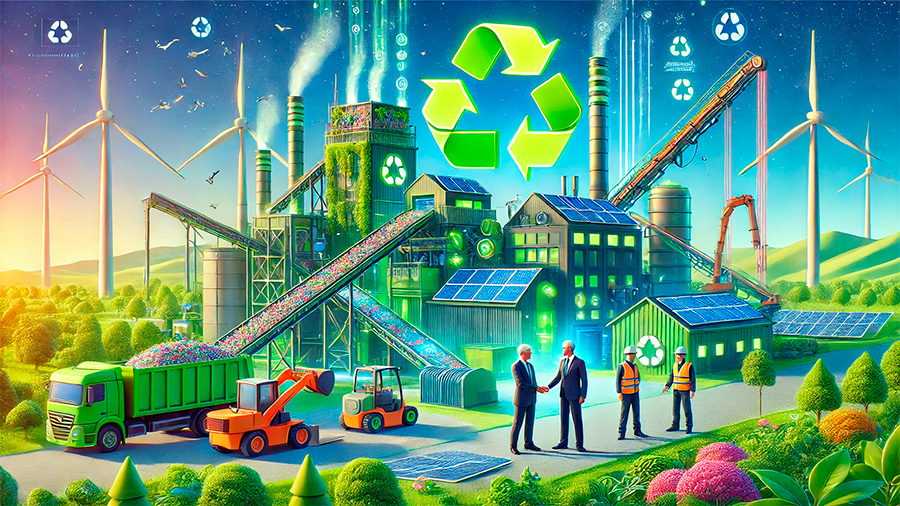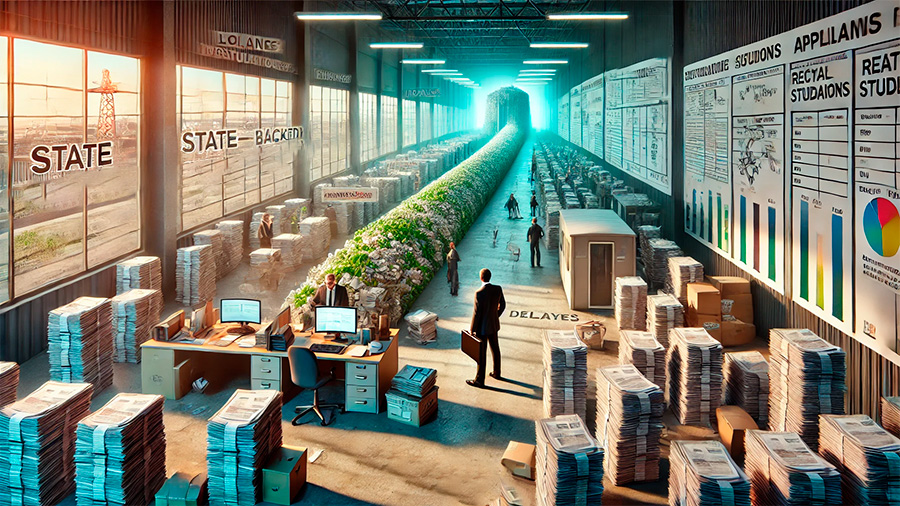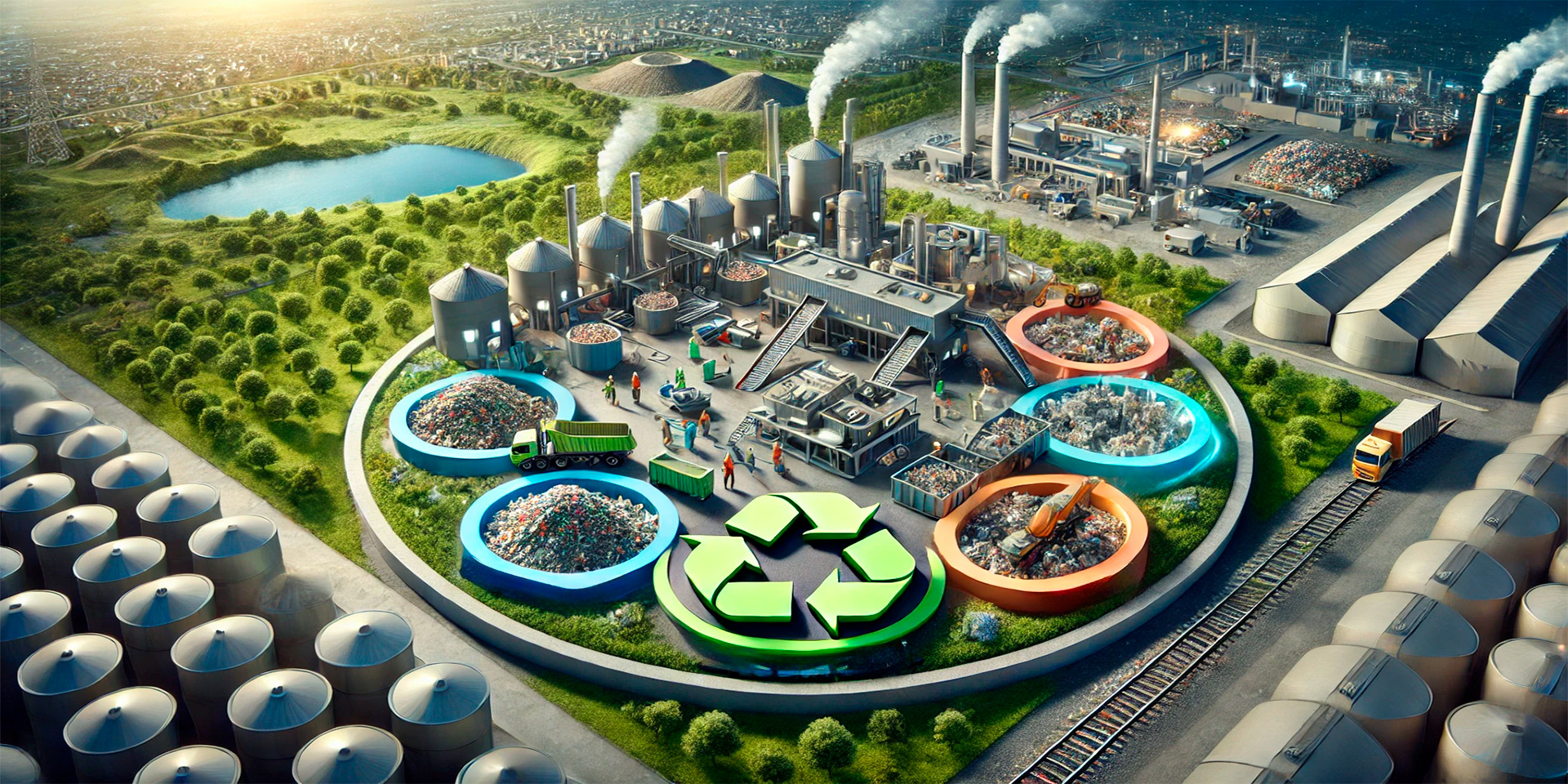As global waste production continues to rise, the need for modern, efficient recycling facilities has become more urgent. Governments around the world are recognizing the importance of investing in sustainable waste management solutions, and state-backed loans have emerged as a key financial tool for businesses looking to develop recycling plants. These loans help companies secure the capital needed to build or upgrade recycling facilities, which are essential for processing waste, reducing landfill usage, and promoting a circular economy. This article explores how government loans are facilitating the development of recycling plants and their impact on businesses and the environment.
The Importance of Recycling in Modern Waste Management
Recycling is a cornerstone of modern waste management systems, contributing to reducing landfill waste, conserving natural resources, and minimizing environmental pollution. As more nations adopt stricter environmental regulations and work towards sustainability goals, the demand for efficient recycling plants is growing. Recycling facilities process a variety of materials, including plastics, metals, paper, and e-waste, which can be reused or repurposed, reducing the need for virgin materials and promoting circular economic practices.
1. Growing Demand for Recycling Infrastructure
The volume of waste generated by both individuals and industries has been increasing steadily over the years, creating a pressing need for advanced recycling facilities. As consumer behavior shifts toward more sustainable practices, and as stricter regulations are imposed on waste disposal, businesses are being urged to invest in recycling technologies. However, the cost of establishing or upgrading recycling plants can be prohibitive without financial support.
The growing demand for recycling infrastructure:
- Increasing waste volumes: Rapid urbanization, population growth, and consumption-driven economies are generating unprecedented amounts of waste, driving the need for scalable recycling solutions.
- Regulatory pressure: Governments are implementing stricter waste management laws, such as extended producer responsibility (EPR) regulations, which require companies to take responsibility for the lifecycle of their products, including recycling.
- Environmental impact awareness: Growing public awareness of environmental issues has led to a demand for more efficient recycling systems that can reduce the environmental footprint of waste.
2. Recycling and the Circular Economy
Recycling plays a key role in the circular economy, where the lifecycle of materials is extended through reuse, repair, and recycling. Rather than following a linear process where products are disposed of after use, the circular economy promotes reducing waste and maximizing the utility of resources. Recycling plants are essential for closing the loop in this system by converting waste into raw materials that can be reused in production, reducing reliance on new resources.
The role of recycling in the circular economy:
- Resource conservation: Recycling reduces the demand for raw materials, conserving natural resources such as metals, water, and energy.
- Waste reduction: Efficient recycling systems help divert waste from landfills, reducing the environmental harm caused by waste disposal and contributing to cleaner cities and communities.
- Economic benefits: By turning waste into valuable raw materials, recycling creates a secondary market for goods, supporting job creation and economic growth in the green economy.

How State-Backed Loans Support Recycling Plant Development
State-backed loans are a vital tool for businesses that wish to invest in recycling infrastructure but lack the capital to do so. These loans provide low-interest financing or favorable repayment terms that make it easier for companies to build or upgrade their recycling facilities. By easing the financial burden, state-sponsored loans enable businesses to meet the growing demand for recycling services and contribute to sustainable waste management solutions.
1. Low-Interest Loans for Recycling Plant Construction
One of the key advantages of state-backed loans is their low-interest rates. Traditional financing options, such as bank loans, may come with high-interest rates that make long-term investments in infrastructure projects like recycling plants financially challenging. Government loans offer lower rates, which reduce the overall cost of borrowing and make the repayment process more manageable for businesses.
How low-interest loans help businesses:
- Reduced financing costs: Lower interest rates make it more affordable for businesses to secure funding for the construction of recycling plants, reducing their financial burden.
- Better cash flow management: Low-interest loans help businesses maintain healthy cash flow, ensuring they can continue operations while developing new infrastructure.
- Long-term financial sustainability: The favorable terms of state loans enable businesses to invest in projects with long payback periods, such as recycling facilities, without jeopardizing their long-term financial stability.
2. Promoting Environmental Sustainability
State-backed loans do more than just support business development—they also contribute to broader environmental sustainability goals. By funding the construction and expansion of recycling plants, these loans help reduce waste, minimize carbon footprints, and promote sustainable practices. Governments are incentivizing businesses to adopt cleaner technologies by making financial support accessible for those committed to reducing environmental harm.
How loans promote environmental sustainability:
- Green energy integration: State-backed loans often support the integration of renewable energy sources, such as solar or wind power, into recycling operations, further reducing the environmental impact.
- Waste diversion: Recycling plants funded by government loans help divert millions of tons of waste from landfills, lowering methane emissions and reducing the demand for landfills.
- Compliance with environmental regulations: Loans enable businesses to invest in technology and infrastructure that helps them meet regulatory requirements and avoid penalties for non-compliance.
3. Job Creation and Economic Growth
Recycling plant development supported by government loans has direct economic benefits, particularly in terms of job creation. New or expanded recycling facilities require skilled workers for operations, maintenance, and management. By supporting the growth of the recycling industry, state loans help create green jobs and stimulate local economies, especially in regions where waste management infrastructure is lacking.
Economic benefits of recycling plant development:
- Job creation: The construction, operation, and maintenance of recycling facilities create jobs in manufacturing, engineering, logistics, and administration.
- Economic diversification: States can diversify their economies by supporting industries that focus on sustainable practices and waste management, fostering new opportunities for growth.
- Local economic stimulation: Recycling plants contribute to the local economy by creating demand for goods and services from local businesses, boosting regional economic activity.

Challenges in Accessing State-Backed Loans for Recycling Plant Development
Although state-backed loans provide significant advantages, businesses may face certain challenges when applying for these loans. These challenges include eligibility criteria, lengthy application processes, and competition for limited funds. To ensure that state loans are used effectively, businesses must navigate these hurdles carefully.
1. Eligibility Requirements
State-backed loans are typically reserved for businesses that meet specific criteria, such as being committed to environmental sustainability, demonstrating financial stability, and providing a clear plan for the use of the funds. Companies that do not meet these requirements may find it difficult to secure funding.
How eligibility affects loan access:
- Strict criteria: Some state-backed loans may require businesses to meet high environmental and financial standards before they are eligible to apply.
- Proof of feasibility: Businesses need to show that the proposed recycling facility will be financially viable, capable of handling projected waste volumes, and aligned with long-term sustainability goals.
2. Lengthy Application Processes
The application process for state-backed loans can be time-consuming and bureaucratic. Businesses may have to wait months before receiving approval, which can delay the construction or expansion of recycling plants. During this period, companies may face operational challenges or miss out on other opportunities for funding.
The challenges of loan application processes:
- Documentation and reporting: Companies must provide extensive documentation, including business plans, financial projections, and environmental impact assessments, which can be time-consuming to compile.
- Approval delays: The approval process for government loans can be slow, particularly when many businesses are applying for limited funding.
Conclusion
State-backed loans are an essential tool for supporting the development of modern recycling plants, enabling businesses to invest in the infrastructure needed to process increasing volumes of waste. By providing low-interest financing and promoting sustainability, these loans help businesses reduce their environmental impact while also contributing to local economic growth through job creation and infrastructure development. Although there are challenges in accessing these loans, the benefits they provide in fostering a more sustainable and efficient waste management system are invaluable. As the global focus on recycling and sustainability continues to grow, state-backed loans will remain a critical component in building the future of waste management and promoting a circular economy.

